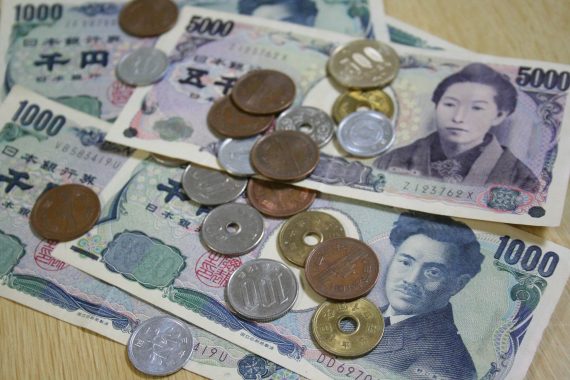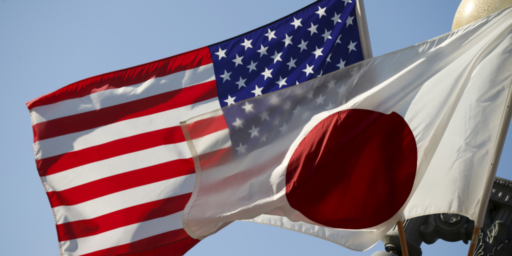Japan’s National Debt Hits A Quadrillion Yen
Japan's National Debt has reached a level that's somewhat incomprehensible.
Japan’s National Debt has reached a level that’s somewhat incomprehensible:
Japan’s eye-watering national debt has topped one quadrillion yen, official data showed Friday, a record figure that underlines Tokyo’s struggle to curb its huge borrowing.
The figure supplied by the finance ministry of ¥1.008 quadrillion, or a thousand trillion by the end of June amounts to about £6.71 trillion at current exchange rates. By comparison, Britain’s national debt is £1.2 trillion.
Tokyo has the dubious distinction of having, proportionately, the biggest debt pile among industrialised nations, more than twice the size of its economy.
The lion’s share of that debt is from long- and short-term Japanese government bonds, as well as other borrowing
It’s a staggering number, but let’s put it in perspective:
Compared with Japan, the United States national debt is a mere $16 trillion or so. But if you convert that number into yen, it comes to about 1.5 quadrillion.
So, in raw numbers, the United States actually “wins” this battle, although Japan’s debt-to-GDP ratio is far higher than ours is. At least for now.







Quadrillion. I hadn’t really had a use for that number … until now. That’s a lot of zeroes.
Anybody good with Japanese here? I think that number would be:
sen-chou
sugoi!
And US debt in pennies is even bigger, 1.2 quadrillion. And Japanese debt is a quintillion rin. (10^18 for the numerate.) And I just bought a house and owe 130% of my salary. Boo! Big numbers are so scary. But what’s the point actually?
What is interesting is that both Schwartz at the NYT link and Doug mention that US debt is lower compared to GDP than Japan’s, but neither mention the number, 74% of GDP compared to Japan’s 214%. (2012 CIA numbers via Wiki.)That might make US debt sound less scary and we can’t have that.
No reports of wheelbarrows full of yen to buy groceries? No well armed citizens forced to defend their homes from the swarming mobs? No concentration camps? No cannibalism?
Like the United States, Japan issues debt in a currency they create. Default is impossible. The only real limits on the amount of debt they can issue are inflation (which they could actually use more of in Japan) and/or political stupidness (which the United States has in abundance).
When I “worry” about debt here in the United States, it’s that political stupidness quotient that is most troubling:
http://talkingpointsmemo.com/archives/2013/08/could_mcconnells_fight_take_down_the_country.php
@Todd: J. K. Galbraith, the Paul Krugman of the 60s, used to have a similar view of inflation. He had a stock line to the effect that the only real danger from modest inflation is that somebody will do something stupid to fight it.
@gVOR08:
Americans are suckers for the “the government should be run like our household” analogy.
There is nothing intrinsically wrong or immoral about debt. Our current national debt is roughly equal to our current productivity and earnings, and most households have total mortgage debt that exceeds the current annual earnings of the household. What is relevant in the case of debt, both for the nation and for a business or household, is whether or not you (we, us) have the earnings capacity to meet our regular debt service obligations.
@al-Ameda: Yes it’s just numbers on a balance sheet. In accounting terms $16 trillion in government liabilities is $16 trillion in private assets. I have a difficult time understanding why this is a problem.
@Franklin: Oh, and including the monetary unit it should be:
sen-chou en
Note that the monetary unit is technically “en” not “yen”. Westerners misheard it due to the way the Japanese say “sen en” (1000 yen) and “ichi-man en” (10,000 yen). The ‘n’ followed by ‘en’ is blended which ends up sounding a little like there’s a ‘y’ in there.
It seems the Japanese have a problem with overspending just like Americans. In America, you have to manage your debt because we have the opportunity to buy property and vehicles, both of which are far more rare in Japan. A debt relief company can aide you in learning how to manage your finances too.
@Mike Della:
Shameless advertising. Boo